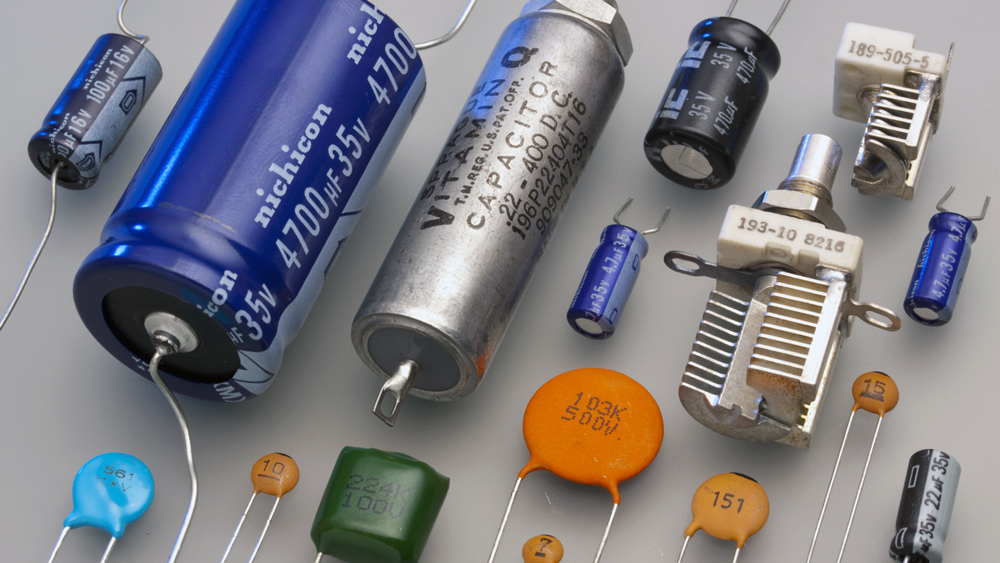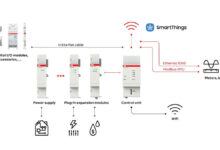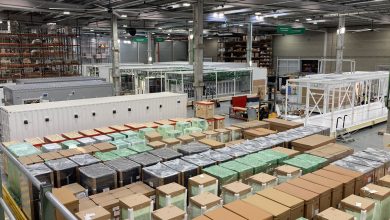Birmingham Technology Could Defend UK Against Power Blackouts
Technology developed at the University of Birmingham could protect the UK and other countries from national electricity blackouts.
Britain has high-voltage, direct-current (HVDC) transmission links with neighbouring countries, including France, Ireland, Holland and Norway – an efficient way of transporting electricity, but vulnerable to alternating-current (AC) faults.
Scientists at Birmingham have developed a solution using controllable capacitors that will ensure the system would never have to be shut down – eliminating the risk of power blackouts.
“The electrical power superhighway is already happening and more HVDC transmission links are in the pipeline. Existing solutions to the problem of AC vulnerability work in some situations, but not in others. Our approach is fundamentally different and solves the problem completely. It works whatever the situation, keeping HVDCs operational and bringing the system back to normal very quickly – it will always avoid having to shut down the system,” Xiao-Ping Zhang, Professor of Electrical Power Systems and Smart Grid Director of the Birmingham Energy Institute, says.
Birmingham’s proposed approach involves converting DC power into AC power, which would help to make the system more reliable, as unlike existing line commutated converter (LCC) HVDC technology, the proposed ‘Flexible LCC HVDC’ is not vulnerable to AC faults.
The technology was showcased at the recent Purple Mountain International Forum on Smart Grid Protection and Operation Control, in Nanjing, China. Sponsored by the Chinese Society for Electrical Engineering, the Forum was organised by State Grid Electric Power Research Institute (NARI Group Co., Ltd) and National Key Lab for Smart Grid Protection and Operation Control.
The technology was showcased at the recent Purple Mountain International Forum on Smart Grid Protection and Operation Control, in Nanjing, China. Chaired steered by Chinese Society for Electrical Engineering, the Forum was organised by State Grid Electric Power Research Institute (NARI Group Co., Ltd) and National Key Lab for Smart Grid Protection and Operation Control.
Over 600 international experts from China, the United States, Canada, Greece, Denmark, Australia, and the Netherlands gathered to share smart grid technologies. Dennis Woodford, – one of the world’s leading HVDC authorities gave a keynote speech introducing Birmingham’s new HVDC technology.
Birmingham experts led by Professor Zhang have published a series of papers on the technology since 2016, which are helping to create significant improvements to LCC HVDC – including higher reliability and flexibility, smaller footprint and lower costs.
‘The big challenge we have is that the LCC HVDC system is vulnerable to AC faults. Imagine we had a fault in the UK with the DC links. It would mean neighbouring DC links would be affected, and if that happened it could trigger a national-wide power blackout. The DC system would be shut down,” Professor Zhang adds.
About University of Birmingham
The University of Birmingham is ranked amongst the world’s top 100 institutions, its work brings people from across the world to Birmingham, including researchers and teachers and more than 6,500 international students from over 150 countries.
Birmingham Energy Institute is the focal point for the University and its national partners, to create change in the way we deliver, consume and think about energy. The Institute harnesses expertise from the fundamental sciences and engineering through to business and economics to deliver co-ordinated research, education and the development of global partnerships.
Related publications can be found on Professor Xiao-Ping Zhang’s personal website: www.profxiaopingzhang.org
Dennis Woodford’s keynote the presentation can be found at https://mp.weixin.qq.com/s/5_D9842OdAWU9UxjJiXxBw







